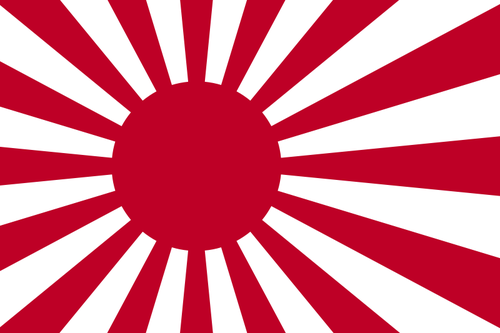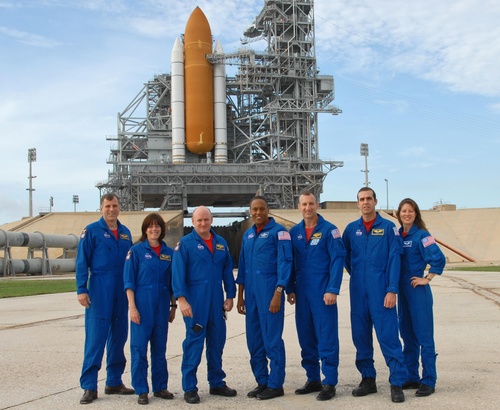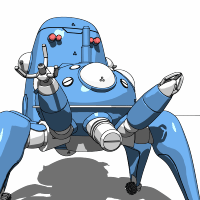August 30, 2007
This is a good read, but I have to take issue with some of the analysis and pre-occupation with the UN. Still though go read it and tell me what you think.
Collective self-defense and collective security: what the differences mean for Japan.
Collective self-defense is authorized, along with individual self-defense, by Article 51 of the United Nations Charter. Put simply, if a country in the international system has suffered an armed attack, then any other country has the right, but not the duty, to use armed force against the aggressor in reliance upon the principle of collective self-defense.
The only preconditions, in addition to the determination that an armed attack has occurred or is irrevocably in motion, are that the use of force is deemed necessary, that the force is proportionate to that used in the attack or the threat posed, and that it is immediate.
What is crucial to recognize here, however, is that there is no requirement that the U.N. Security Council make any prior determinations, much less authorize the use of force. Thus, if Canada were to launch an armed attack against the United States, to take a far-fetched hypothetical example, and Japan was permitted under its constitution to exercise the right of collective self-defense, then it could use force against Canada under international law (regardless of whether Japan had a mutual security treaty with the U.S.).
So long as the Japanese government itself came to the conclusion that the U.S. had indeed been the victim of an armed attack, Japan would be free to use force against Canada in reliance on collective self-defense (though the Security Council or the International Court of Justice could subsequently find that the use of force was unjustified, as happened to the U.S. in the case Nicaragua v. The United States of America).
In contrast, collective security involves the use of force to maintain or restore international peace and security, as authorized by the U.N. Security Council under Chapter VII, and specifically Article 42, of the U.N. Charter. There need be no "armed attack" as a conditional precedent, but merely a determination by the Security Council that there is a threat to the peace, a breach of the peace, or an act of aggression, such that the use of force or other measures are required to maintain or restore international peace and security.
So the scope of collective security operations is much broader and the threshold for its use much lower, than for collective self-defense; but states may not act unilaterally, singly or together, under the guise of collective security. Authorization by the U.N. Security Council is necessary.
The continuing debate both within and outside of Japan as to her future role militarily in the world is slowly but surely beginning to gather momentum. While many of her neighbors and more than a few of her own citizens would like to continue Japan's reliance upon others for her security it becomes ever more obvious that this can no longer be the case. The author of this piece misses what is really one of they key facts in the modern world, that institutions like the UN aren't worth the price of the paper their charters are written on. After all what exactly an amended article nine does or doesn't allow for is entirely dependant upon the interpritation of the then current Japanese government. That is the key issue here, not what the constitution says but what the government believes it says. Words are open to differing interpritations, and those interpritations often play a large part in crafting what actions the Japanese government does and does not take. The author is confusing the words of document of no worth, the UN charter with that of tremendous worth and importance, the costitution of a sovereign nation. Even the oldest and most straight forward of political documents must be interpritated to apply them to the modern world. One of the primary duties of the US Supreme court is to provide guidance and interpritation of the US Constitution when the meaning of an article or amendment is at controversy. The real world has a nasty way of making the utopian ideals of the past and present reveal themsleves for the terrible and misguided things that they are. How you interpret the words of a constitution can allow you to do things that are completely contridictory to the clear meaning of the words contained there in.
If I maybe be a bit unrealistic here for a moment but the Japanese could in theory take action against the taliban and al qaeda since Japanese nationals were killed in the attack on the twin towers. This could be justified by simply taking the position that an attack upon a nation's citizens by a foriegn power is an ipso facto attack upon the nation as a whole. Article nine as it now exsists forbids the use of war and the right of beligerency, but this can be avoided by using a term other than war to descibe what is in effect war. After all according to the Truman administration there wasn't a war in Korea but rather a Police Action.
For the record her is the exact wording of article nine as it is now, quoted from Wikipedia: (quoted sections in blue)
ARTICLE 9. Aspiring sincerely to an international peace based on justice and order, the Japanese people forever renounce war as a sovereign right of the nation and the threat or use of force as means of settling international disputes.And to effect this it is furthered by section 2 which forbids the posession of a military.
In order to accomplish the aim of the preceding paragraph, land, sea, and air forces, as well as other war potential, will never be maintained. The right of belligerency of the state will not be recognized.
From a strictly legal point of view the Japanese goverment has been in violation of section 2 of the article since 1949, but have avoided that issue by deft symantic footwork. If symantics can allow for the poseesion of a military without removing article nine then I see no reason to see why it can't allow for their use as it stands now. Still the need to amend or remove article nine is needed if simply to remove any calls of hypocracy when Japan makes use of her military power. It needs to be said that should it come down to it the Japanese would make use of their military regardless of what article nine does or doesn't say if the survival of the nation depended upon it. The most likely case for this is in the event of a North Korean invasion of South Korea, which would include strikes at US forces in Japan and as a result attacks upon Japanese forces the share facilities with and given the poor quality if the NK's weaponry the Japanese populace at large. No nation can afford to ignore such a provocation if it wishes to remain a credible power in the eyes of her own citizens and the world. The final analysis is that Japan should simply accept that article nine and other vestiges of high minded world peace idealism were a bad idea when they were included in the postwar conctitution and are even more dangerous and damaging in the unsettled world that she now finds herself residing in.

Posted by: raging tachikoma at
06:41 PM
| No Comments
| Add Comment
Post contains 1243 words, total size 8 kb.
Miscarriage follows ambulance crash after nine hospitals turn woman away.
Some things are almost to hard to believe, yet this really did happen, and the consequences for the person involved will be more than just physical. This type of loss carries with it real and lasting emotional scars that will fade with time but never disappear. As for the hospitals who turned this poor woman away may their directors of emergency medicine rot in the very worst part of hell usually reserved for terrorists and child molesters. I hope that this and similar incidents will spur the Japanese government into sanctioning the hospitals who refused a patient needing treatment. The duty of physician is to first do no harm, and that includes providing a safe enviroment for those in need of care, not allowing them to spend hours in ambulance running from place to place in vain while their condition worsens. The first hour is called the golden hour for a very good reason. If you treat someone within one hour of a medical emergency their chances of survival go up something like eighty percent. I can not fault the paramedics here, they did their utmost to find proper treatment for this poor woman who required much more sophisticated and specialised care than they could offer.
Posted by: raging tachikoma at
06:36 PM
| No Comments
| Add Comment
Post contains 228 words, total size 2 kb.
August 26, 2007
Japan, U.S., Australia to hold 1st summit.
The attention of the world is at this moment focused on the war of the here and now, being waged in the Iraq and Afghanistan, and this war is important and must be one. Yet while this war rages the preperations for the next war continue apace in the east. It may not be readily apparent but the war being fought now is in some ways an anomoly, facing as we are the forces of often vague and fleeting oponents. The vastness of the Pacific today seems to be a reflection of its name, a place that is at peace. But with a China that has grown stronger comes into conflict with the other nations of the region tensions and coflicts can only increase. In this enviroment of simmering and slowly rising tensions the free and democratic nations of the along the Pacific and Indian oceans are reaching out to one another to ensure that they are willing and able to stand together if and when the time to do so should come to pass. This summit along with the strengthening of ties between Japan and India leads me to believe that what we are witnessing is the laying of the foundations for a new alliance in the far east.
Indo-Japan accord moves ties into new dimension.
The time has come I believe to forge a new and lasting alliance of free nations that seeks to counter the opressive and totalitarian regiemes of the world and will yield to no dictator or totalitarian state. I would therefore like to make a rather immodest proposal for the following.
A treaty establishing The Pacific-Indian Ocean Treaty Organization.
We the undersigned democracies, being bound by friendship, shared values, traditions and freedoms establish a strong and permanent alliance between the free nations of the world. We the United States of America, The Empire of Japan, The Republic of Korea, The Nation of Canada, The Nation of Australia, The Nation of India, The Nation of New Zealand, The Nation of Singapore, The Republic of China and The Republic of the Philippines agree to the following:
1. That all of the signatories of this treaty will come to the aid and defense of another member nation if attacked, and will place all available military forces under the control of regional commander previously approved by the Council of Members upon a nomination by one or more of the member nations. When the Council of Members by a thee fourths (3/4) vote deems necessary the member nations may and shall undertake pre-emptive military action against threats to their collective security. Any member nation shall, during times of peace be free to carry out any military actions it deems necessary to protect her citizens and interests without consulting the Council and may form any ad-hoc alliance as may be needed. During time of war as recognized by the Council any member nation may carry out military operations as above with forces not under the control of a regional commander and may use such forces as under a regional commander with the approval of the Supreme Allied Commander however all ad-hoc alliances formed for such operations must be approved by the Council if they involve any nation not a member of this organization or a member of NATO unless such operation is being conduced under the auspices of a UN Security Council mandate.
2. That in times of peace all member nations will maintain appropriate military forces consummate with their economic and population bases. Additionally in times of war member nations will work together to ensure the rational and co-ordinated use of resources in the execution of their assigned tasks.
3. That all members will freely share technology, information and intelligence to further the missions of this organization in both peace time and war time.
4. That all member nations will agree upon certain standards in relation to certain types of military equipment and supplies and to manufacture such goods to the standards promulgated by the Technical Committee of the Council of Members so as to insure interoperability and interchangeability.
5. That all member nations will conduct co-operative exercises involving land, sea and air forces on a routine basis and at all levels from the smallest of subunits to the highest headquarters.
6. All member nations will provide for the forward basing of the military forces of other member nations with the particulars of status of forces agreements and financial arrangements to be negotiated between the specific agreeing parties.
7. All member nations shall make a financial contribution to the Common Fund of the Council of Members annually, the specific amount to be calculated by a formula to by devised by the Finance Committee of the Council of Members and agreed to by the member nations through a two thirds (2/3) vote of the Council.
8. All member nations are encouraged to work together in the development and acquisition of military equipment so as to reduce the total cost of such equipment by taking advantage of the economies of scale and focused effort versus the waste of duplicated effort and small batch production and to further the goals of interoperability and interchangeability among the member nations.
9. A Supreme Allied Commander shall be nominated to the Council of Members by any member nation and the nominee may be from any member nation. The Personnel Committee with the assistance of the Planning Committee, the Operations Committee and the Intelligence Committee shall determine three (3) final nominees to be placed before the Council of Members with the winner to be chosen by a simple majority vote. Should a majority not be achieved by any nominee a second vote shall be taken, failing a majority then a runoff vote between the two (2) highest scoring nominees shall be conducted for a maximum of three votes. Should the Council then be deadlocked the General Secretary of the Council shall cast a deciding vote. The SAC may not be from the same member nation as then holds the position of General Secretary of the Council of Members unless the General Secretary is named to that post while their nation holds the post of SAC. The term of the SAC shall be for four (4) years and the SAC may be renominated and reappointed with out limit providing that the current SAC a) agrees to be renominated, b) their member nation also so concurs and c) that they stand in equal to all other nominees every four years to be renominated and appointed.
10. The Council of Members shall consist of a civilian delegate and military assistant delegate named by the government of their member nation. Each delegation shall have one (1) vote and all votes shall be of equal weight, the voting delegate shall be the civilian delegate except when that delegate is absent and the military assistant delegate shall vote for their member nation. The Council shall have the following committees, and they may form sub-committees as they see fit within their area of responsibility, Finance, Personnel, Operations, Planning, Intelligence, Research and Development, Technical, Air Forces, Land Forces, Naval Forces, Covert Activities and External Relations. Each committee will be headed by a chairman elected by simple majority from among its members, all member nations shall have at least one seat on all committees and may be entitled to more at the discretion of the Council, no nation shall have more than two (2) votes on any committee regardless of the number of seats they possess except for the Intelligence, Planning and Operations committees where all nations shall have one (1) seat and one (1) vote. The Civilian delegate of each member nation will be responsible for naming their nations representatives to each committee and for overseeing their activities as directed by their government. The Military assistant delegate shall be that member nations representative to the Operations committee and may hold no more than one (1) other committee assignment. The Civilian delegate of each member nation will serve on at least one (1) committee other than the Operations committee and no more than two (2) committees at one time. The Council will meet in general session at least every two weeks in peace time and every other day during war time.
11. The General Secretary shall be nominated to the Council of Members by any member nation, but the nominee must be from the nominating nation and must be a civilian at the time of nomination. The Council shall elect the General Secretary by a two thirds (2/3) majority from among the nominee(s) submitted at the beginning of every third year. The General Secretary shall not vote except when a simple majority is required to reach a decision and after three consecutive votes the issue remains deadlocked or the General Secretary may adjourn the Council for seventy two (72) hours and may then call for two additional votes on the issue. The issue in contention then still being deadlocked the General Secretary shall then cast the deciding vote. The term of the General Secretary shall be three years and the General Secretary shall serve no more than two consecutive terms but shall not be limited in nonconnective terms. Nominees for the post should be submitted in writing to the Personnel committee no later than the twenty eighth (28) day of February, leap years excepted when they shall be due on the first (1) day of March. The vote to name a new General Secretary or retain the current General Secretary if so eligible shall be taken on the fifth (5) day of December. The General Secretary shall be responsible for acting as president of the Council of Members, overseeing the permanent staff of the Council and the Office of the Inspector General and acting as impartial judge in settling disputes between member nations.
12. All Disputes between member nations may be brought before the Council of Members for arbitration. The arbitrator shall be named by the General Secretary from among the delegates not party to the dispute in question. Both aggrieved parties must agree to such arbitration and in so doing agree to be bound by such arbitration. If one or both parties is unsatisfied with the outcome of the arbitration they may appeal first to the Office of the Inspector General and then to the General Secretary.
13. Suspension and Expulsion of Member Nations. Any nation that violates the basic principles of this body, namely failing to maintain a free, democratic government, violating the basic inalienable rights of their citizens with out regard to the law or generally behaves in a manner that the Council feels is inconsistent with the Free and Civilized World may be temporarily suspended from the Council by a three fourths (3/4) vote and may be expelled by a unanimous vote of the Council. In such votes neither referring party or the accused party shall cast a vote in determining either suspension or expulsion. Any nation suspended form the Council shall be eligible to apply for readmission after ninety (90) days, and will automatically be readmitted after eighteen (18) months if the Council takes no further action to renew the suspension or move for expulsion. Suspended members may still attend all Council functions and speak as members but may only vote on those issues which the General Secretary shall so designate and the shall not be eligible to receive funds from the Council Common fund or the Modernization fund. Expelled members may apply for readmission after a period of five (5) years or earlier at the invitation of the Council.
14. The Finance committee shall maintain a Modernization Fund separate from the Common Fund. Money form the Common Fund shall be used to further the general mission of the organization and to assist its member nations as directed by the Council of Members. The Modernization Fund shall only be used to assist nations in the modernizing and improving of their military forces and related technical sectors to strengthen the overall alliance as directed by the modernization Sub-committee of the Technical committee.
15. The Office of the Inspector General shall be independent of all other bodies and shall report directly to the General Secretary. The OIG shall create and maintain a system for the anonymous reporting of abuses of organization funds and materials and to improve the overall efficiency of the organization’s endeavors.
16. The organizations Headquarters shall be established upon the US Territory of Guam. This shall consist of a complex of buildings that meet the needs of the Council, the General Secretary, The Supreme Allied Commander and other tenants. The construction of such facilities shall be paid for by a special assessment by the Finance committee to all member nations. The United States agrees to construct at its own expense housing and any other needed facilities for the Organization and to cover the cost of maintenance on such facilities for a period of five (5) years after which time such costs shall be provided for from the Common Fund.
17. New members may admitted by a two thirds (2/3) vote of the council in general session and all new members shall be subject to a probationary period of membership no longer than five (5) years and no less than one (1) year. During this probationary period the new member nation must meet certain goals or make such progress toward those goals that Council believes substantial enough to end the probationary period. Such goals shall be defined in the Articles of Accession that the new member government agrees to upon accepting membership. Failure to meet these goals shall see a one (1) year extension of the probationary period and may also result in denial of Common Fund assistance if the Council so deems.
18. Should any member nation be attacked on their Territory, their flagged ships upon the high seas or their planes in the skies such an action will be considered an act against the whole of the group and will be treated as such. Furthermore any attack against the citizens of a member nation by any other nation or terrorist group any where in the world will be regarded as an attack against the whole, this however shall exclude those wounded in military actions taken by member nations during peace time as defined in article one (1). Any member nation so attacked may petition the Council for a Declaration of a state of war. Such declarations shall be granted by a three fourths (3/4) majority vote in the Council. Upon certifying such a declaration the General Secretary shall inform the Supreme Allied Commander who will then name regional commanders to take control of allied military forces in their area of responsibility. All nations must contribute to the defense of the attacked after such a declaration and failure to do so will result in immediate expulsion from the organization. All nations will be informed before hand as to what forces they are expected to contributed based upon the war plans prepared by the Planning committee and will be expected to do their utmost to meet those responsibilities.
19. The undersigned Nations, having freely agreed to this treaty do hereby establish the Pacific-Indian Ocean Treaty Organization Upon this day the __ of ____________ in the year 200_.
So that is my concept for a new alliance the far east, I know that the chances of something like this being brought about are slim but one can hope after all.
Posted by: raging tachikoma at
05:37 PM
| No Comments
| Add Comment
Post contains 2590 words, total size 16 kb.
August 18, 2007
GOOD, BAD OR UGLY? Roh's trip to Pyongyang puts three scenarios in play.
History has proven time and again that attempting to negotiate with or appease dictators is to merely prolong their continued exsistence. President Roh should realize that no matter what he does or says Pyongyang will do as they please and what they feel is in their best interest. The only way South Korea can come to terms with the North is either by exercising patience or through all out military victory. Given that at the moment the chance of renewed fighting among the beligerents is fairly low by the standards of the Korean penisula the south must simply wait for the inevitable collapse that befalls all opressive regiemes in the end. President Roh should keep these words from Mark Twain in mind at the upcoming summit, 'Better to remain silent and be thought a fool than to speak and remove all doubt.' Untill this meeting actually occurs we can only wait and hope for the best, but we should also be prepared for the worst.
Posted by: raging tachikoma at
03:06 PM
| No Comments
| Add Comment
Post contains 181 words, total size 1 kb.
August 15, 2007
Today marks exactly sixty two years since the Japanese surrendered, ending world war two. What is most striking about the war is not the outcome of the battles themselves, but of the world that arose from the ashes. Unique in history the US has sought to treat its defeated enemies not with punishment and vengenace but with magnamity and compassion. If one had to describe the US attitiude toward victory I would state it as thus: "Having defeated our enemies let us treat them not as the conquered and submited foe but rather as those now freed from opression and privation. Let them be reborn, not as enemies but as allies, friends not foes. We seek to help create a more equitable and just world. We extended now the hand of help and aid having laid aside the might of sword and shield. Let us working together build now a free, just and democratic world, and may history judge that we left the world a better, safer, freer and more prosperous place than we first found. And barring that may posterity record that we tried with all our might to make it so."

VJ Day crowd in Times Square, New York City.
Posted by: raging tachikoma at
06:00 PM
| No Comments
| Add Comment
Post contains 205 words, total size 1 kb.
August 08, 2007
From Fox News:
A Michigan man scrubbed a monument to U.S. troops with a toothbrush Tuesday while wearing a T-shirt that read "I Stole From Veterans" as part of a punishment for a scam to solicit scrap yards for metal, the Saginaw News reports.
Full Story Here.
Sometimes creativity in a judge can be such a heartwarming and uplifting trait.
Posted by: raging tachikoma at
11:14 PM
| No Comments
| Add Comment
Post contains 64 words, total size 1 kb.
August 07, 2007
Mission STS-118 will be the first for Mission Specialist Barbara Morgan, the teacher-turned-astronaut whose association with NASA began more than 20 years ago. First Lady Laura Bush called Morgan Tuesday morning to offer congratulations "one schoolteacher to another," and to thank her for her commitment to the space program and to education.
Full STS-118 mission information here.
The Crew of STS-118, from left to right, Mission Specialist Richard A. Mastracchio, Mision Specialist Barbara R. Morgan, Mission Commander Scott J. Kelly, Mision Specialist Benjamin Alvin Drew Jr., Mission Pilot Charles O. Hobaugh, Mision Specialist Dr. Dafydd (Dave) R. Williams, and Mission Specialist Tracy E. Caldwell.
Dedication comes in many different forms but sweating it out for twenty one years is not something that a lot of people could manage. For me though it is easy enough to understand, the opportunity to go into space is definitely something worth waiting for. STS-118 will pave the way for STS-120 in December, which will open the way for the instalation of the Japanese Kibo Labratory and the ESA's Columbus Lab modules.
A series of recent shuttle missions have added to the International Space Station's exterior with new elements for its main truss. Now, Discovery will take into orbit a connecting module that will increase the orbiting laboratory's interior space.October's STS-120 mission will bring the Harmony module, christened after a school contest, that will provide attachment points for European and Japanese laboratory modules. Known in technical circles as Node 2, it is similar to the six-sided Unity module that links the U.S. and Russian sections of the station.
Full info on STS-120 is here.
Posted by: raging tachikoma at
09:46 PM
| No Comments
| Add Comment
Post contains 277 words, total size 2 kb.
August 05, 2007
Tomorrow, August sixth will mark sixty two years since the droping of the atomic bomb "Little Boy" on Hiroshima Japan. I know that to many Japanese it is difficult, if not imposssible to understand why the US used such weapons. But I also am aware that many Japanese use the dropping of the two atomic bombs as a way to paint Japan as the victim of a war of her own creation, somehow this seemingly absolves her of all blame. Perhaps the most oft repeated utterence is that the bombs were inhumane. They were, but war is in itself the most inhumane of acts, nothing can ever change that. Nothing can make right or acceptable the taking of human life from a moral perspective, it is a wrong, but at times a sadly necessary thing. Nothing is as inhumane as war, where nations seek to bring each other to their knees. In my heart I know that the dropping of the bombs saved many times the lives it took, many more of those lives Japanese than American or allied soldiers.
The devastation wrought by further atomic attacks, the use of chemical weapons and finally an invasion would have taken twenty to thirty million Japanese lives and perhaps as many as one million American and perhaps five hundred thousand allied lives. The aftermath of an Invasion of Japan one must wonder if ther would even be a nation known as Japan today, much less a wealthy and prosperous one. Yes the bombs were terrible and viscous weapons, but so are all weapons when used on our fellow man. If the killing of perhaps 200,000 people in two attacks is inhumane then what is the Tokyo fire bombing of the night of 9 March 1945? This attack took more lives than the bombing of Hiroshima, yet is often lost admist the clatter of how terrible and unjustified the atomic bombings were.
The nature of war does not allow for sentimentality, one must go forward with what will bring about victory. And if defeated one must accept and deal with the consequences of defeat. The only change brought about by the atomic bombings is that what once required hundreds or thousands of planes could now be done by one. In the end this is little more than an argument of the modality of death versus the inhumanity and cruelty of death in war itself from whatever cause and whatever reason. A murder comitted with a knife is just as terrible and devastating as one comitted with a gun, or bare hands or a car. Death and inhumanity are what in the end bring about victory in wars like world war two. Victory is achieved when the enemy comes to realize that carrying on is more harmful and devastating than surrender and the temporary shame and frustration that occupation will bring. If only Japan had seen that was the case much sooner, then many tens of thousands of lives could have been spared.
More below the fold.
more...
Posted by: raging tachikoma at
04:40 AM
| No Comments
| Add Comment
Post contains 814 words, total size 5 kb.
August 01, 2007
So here it is RapidShare Bypass, and ironically enough it is hosted on rapidshares's own website. Go here and decompress and follow the instructions in the readme file. Once your done you can download files to your heart's or hard drive's content.
Posted by: raging tachikoma at
10:06 AM
| No Comments
| Add Comment
Post contains 46 words, total size 1 kb.
34 queries taking 0.031 seconds, 77 records returned.
Powered by Minx 1.1.6c-pink.














